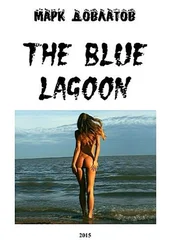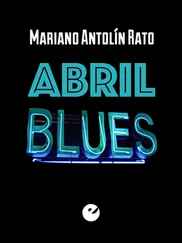I shouted at my mother in French, ‘Shut that stupid baby up, or I’ll throw it out the window!’
She said in an unmistakably threatening tone, ‘Mind your manners, or we’ll go back home and forget about visiting Papa!’ Then she added in a whisper, ‘The lady knows a bit of French — what if she understood what you said?’
‘I want to go to the toilet.’
My mother took me to the toilet. She told me to avoid sitting on the seat of the commode.
‘How?’
‘Just don’t touch it! It’s not clean. Leave some space, even if it’s only a little bit, between your bottom and the seat.’
‘I can’t!’
‘Like this.’ My mother put her arms round my waist, so that my weight was supported by my legs and her arms. I emptied my bladder.
I laughed and said, ‘That wasn’t so bad!’ Then, as I followed her back to our seats, I said, ‘It’s not that hard. I can do it by myself next time.’
But the next time I said I was ‘going to the toilet’, it wasn’t to relieve myself; I had decided that I wasn’t going to put up any longer with the dress I’d been made to wear. I went into the toilet, took off the dress, folded it up, and went back out in my underwear. Let my mother say what she liked, let her shout as much as she pleased, she was barmy anyway, yelling all the time for no reason — now she’d have a reason. When I got back to my seat, my mother was engrossed in talking to the fat woman. I sat down calmly and closed my eyes, willing myself to sleep. And in fact I dozed off.
As soon as we entered the hotel room the fat woman sighed deeply and pulled down the covers in order to lay the baby down. ‘Bedbugs!’ she exclaimed. And with that she took out a container of insecticide, gave the baby to my mother, and instructed us to leave the room. A few minutes later she joined us, reclaimed her son, and we went down to the hotel restaurant.
‘Mama, the restaurant smells bad!’
‘Mama, the tablecloth’s dirty!’
‘Mama, the food’s nasty!’
My mother shouted at me in front of the fat woman and her baby, so I turned my face away from her and announced that I wasn’t hungry. I pressed my lips tightly together, crossed my arms on my chest, and stared fixedly at the opposite wall until they finished eating. Then we moved into the sitting room next to the restaurant, but I kept silent and wouldn’t look in their direction, until we went upstairs to the room. We opened the windows, but the smell of insecticide was overwhelming. I told my mother I was going to suffocate, but she said I would just have to bear it. I didn’t see why. Then she gave me a bath and dressed me in my nightgown. She pulled down the covers. The sheet had a big dark stain on it, and I refused to lie down on it. My mother laid a clean, white towel over the stain and said, ‘ Voilà! Now you can lie down!’
I refused. I stayed where I was, sitting on the chair. Everyone else went to sleep, and in the silent room I was able once more to recall the little mice and continue my conversation with them. Talking to mice was so much nicer than talking to Mama. I sat cross-legged on the chair, and we carried on talking until I drifted off to sleep.
We left the hotel that had so thoroughly disgusted me, with its corridors and vestibule dimly lit by a yellowish glow. Despite the desolation and the enveloping gloom as we hired a taxi, I was complaisant. For my mother had at last permitted me to put on the red dress. She had released my hair from its plait, replacing it with a ponytail, which she secured with an elastic band and tied with a ribbon of white satin. When my mother decided to sit next to the car door and put me between herself and the fat woman, I didn’t protest.
The darkness was impenetrable, utterly lightless except for the tiny stars in the sky. I stared at them continuously through the window, until the darkness faded to purple, then lilac, then yellow. After that we passed into pure orange, as an intense sun lit up the sand dunes that extended away from us on either side, interrupted here and there by barren hills of dark-grey or reddish rock. (My mother is right, no doubt, that I have taken this road many times, for its features are sharply defined: why then can I call to mind the memory of only a single journey?)
All at once I exclaimed, ‘Mama, I’m happy!’ I turned to the fat woman, smiled at her, and asked her what her son’s name was. I set about playing with him, making him laugh, and then I asked whether I could hold him. His mother positioned him in my arms, gently drawing my right arm around his little body, and guiding my left hand to support his head. I was thrilled by my own ability to hold a baby correctly, and I fell to prattling to him, calling him by name, petting and jiggling him. I loved this connection with him, and felt he was even nicer than the mice I’d amused myself with the night before. Then all at once he was sick on me. His mother laughed, and I burst into tears. I cried until we arrived, telling my mother, ‘I’m going to my father in a dirty dress, and this horrid lady laughed! What’s so funny about a nasty little boy who is sick on beautiful dresses?’ I turned to the woman and said, ‘He was sick on me!’
‘Child,’ she replied, ‘he wasn’t sick, he just spat up. All babies do that! And the dress is lovely on you!’ She laughed, and I cried even harder.
My mother later said it was the longest I’d ever cried in my life, that I cried from six o’clock in the morning until we arrived at eight.
The taxi stopped in front of a great, sprawling single-storey building, with small, barred windows. On top of the building were men armed with rifles. Three guards came out, and one of them asked, ‘Visiting?’
‘Visiting.’
‘Permits?’
He took the folded papers that were handed to him. He disappeared, then came back. ‘Come along.’
In a vast room furnished with small tables and a lot of chairs we sat down to wait. Two men in strange clothes appeared. One of them rushed toward me and tried to catch me up. I struggled against him.
What a reunion: I didn’t recognise my own father!
I say I didn’t recognise my father, because this is what my mother kept repeating throughout the months that followed, and in later years it was the story my father recounted, laughing as if it were a joke. But a twitch in the corner of his left eye told a different tale. How does the mind record what has happened, by what logic is memory subverted, delivering me to a recollection of events that is the opposite of what really happened? During the succeeding months I thought it was my father who hadn’t recognised me. Every time I cried (because my mother scolded me or because my teacher disciplined me, or because a toy I loved broke in my hands), the tears would be automatically transformed to sorrow that my father hadn’t known his Nada, that he had forgotten me, that he didn’t want me. I would repeat these things to myself, my sobs rising in a crescendo.
Chapter two
Which of the two men is better?
I have to reconstruct in my imagination what occurred at our home at dawn on the first of January 1959. I was asleep, and didn’t witness any part of the event. I woke in the morning to my mother’s pale face. I was surprised at how preoccupied she was with tidying the house — she worked rapidly, nervously, mechanically, as if it were essential that, by some specific time, she do away with the clutter and disorder all over the place. In the days that followed, although no one said a word to me about what had happened, everything around me appeared strange and bewildering: my father’s absence, the expression on my mother’s face and the jarring rhythm of her speech, the sudden arrival of my grandmother and paternal aunt who came from Upper Egypt to stay with us for several days — which had never happened before — the frequent visitors and their whispered conversations among themselves and with my mother: conversations that broke off abruptly any time I turned up in their vicinity. Then those evasive answers each time I asked about my father: ‘He’s travelling.’ ‘He’ll be back soon.’ ‘His job required him to travel unexpectedly, and he didn’t want to wake you up.’ ‘He’ll stay there for a while.’ ‘We’ll go and visit him soon.’ ‘His work is far away, we can’t go there now!’ Answers that proved there were no answers, fashioning around me a dense fog that only intensified my fear and confusion.
Читать дальше











